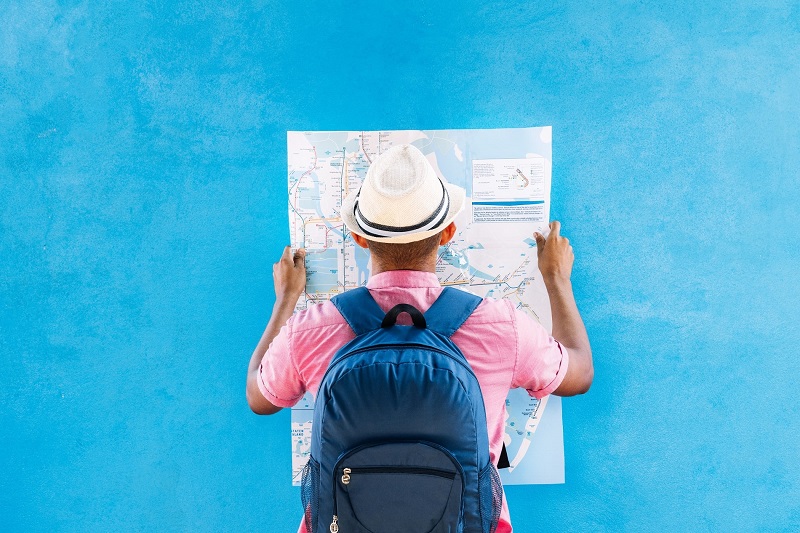Traveling to international destinations can be an exciting and enriching experience, but it can also be challenging, especially if one is not prepared for the cultural differences that may exist. Cultural differences can range from language barriers to customs and traditions that may be unfamiliar to visitors. To fully enjoy and appreciate their travel experiences, it is essential for travelers to be culturally savvy and prepare themselves for the differences they may encounter.

Cultural savvy is the ability to navigate and interact with people from different cultures effectively. This includes understanding cultural norms, values, and beliefs, as well as being aware of differences in communication styles and behaviors. Being culturally savvy can help travelers avoid misunderstandings and miscommunications, leading to a more enjoyable and meaningful travel experience.
Preparing for international destinations requires research and education. It is essential to learn about the culture and customs of the destination country before traveling, including the language, food, dress codes, and social norms. This can help travelers avoid cultural faux pas and show respect for the local culture. Additionally, it is important to be open-minded and flexible, as unexpected situations may arise, and travelers may need to adapt to unfamiliar situations.
Understanding Cultural Norms

Communication Styles
When traveling to a foreign country, it is important to understand the communication styles of the locals. For example, in some cultures, direct eye contact is seen as a sign of respect and attentiveness, while in others it may be considered rude or confrontational. Additionally, some cultures may value indirect communication, such as using euphemisms or speaking in a roundabout way to avoid causing offense. It is important to research and understand these nuances before traveling to ensure effective communication and avoid misunderstandings.
Social Etiquette
Social etiquette can vary greatly between cultures. For example, in some cultures, it is customary to remove one’s shoes before entering someone’s home, while in others it is considered impolite to do so. Similarly, gestures and body language can have different meanings in different cultures, and it is important to be aware of these differences to avoid unintentionally causing offense. Researching and understanding social etiquette can help travelers navigate social situations with ease and respect.
Business Practices
Business practices can also vary greatly between cultures. For example, in some cultures, punctuality is highly valued and arriving late to a meeting can be seen as disrespectful, while in others, arriving on time may not be as important. Additionally, gift-giving can be an important part of business culture in some countries, while in others it may be seen as inappropriate. Understanding these cultural differences can help business travelers navigate meetings and negotiations with ease and professionalism.
Overall, understanding cultural norms is crucial when traveling to international destinations. By researching and familiarizing oneself with the communication styles, social etiquette, and business practices of a foreign culture, travelers can ensure effective communication, avoid misunderstandings, and show respect to their hosts.
Researching Your Destination

Before traveling to an international destination, it’s important to conduct thorough research to gain insight into the local culture, customs, and history. This will help travelers avoid cultural faux pas and better understand the context of their experiences. Here are some key areas to research:
Local Customs
Every country has its own unique customs and traditions, and it’s important to be aware of them to avoid offending locals. For example, in some countries, it’s considered impolite to tip at restaurants, while in others it’s expected. In some cultures, it’s customary to remove shoes before entering someone’s home, while in others it’s not. Researching local customs can help travelers better navigate social situations and show respect to the local culture.
Historical Context
Understanding the historical context of a destination can provide valuable insight into its culture and traditions. For example, knowing about a country’s colonial past or political history can help travelers better understand its current social and economic landscape. Additionally, learning about significant historical events and landmarks can enhance the overall travel experience. Researching historical context can be done through reading books, watching documentaries, or even visiting museums.
Language Basics
While it’s not necessary to become fluent in the local language, learning some basic phrases can go a long way in showing respect to the local culture and making meaningful connections with locals. Knowing how to say “hello,” “please,” and “thank you” in the local language can help travelers navigate social situations with ease. Additionally, learning key phrases for ordering food or asking for directions can make travel more enjoyable and less stressful. There are many language learning apps and resources available online to help travelers prepare for their trip.
In conclusion, researching a destination before traveling can help travelers gain a deeper understanding of the local culture and customs, making for a more enjoyable and respectful travel experience. By researching local customs, historical context, and language basics, travelers can better navigate social situations and make meaningful connections with locals.
Cultural Sensitivity Training

Preparing for international destinations requires more than just packing the right clothes and learning a few key phrases. It also requires cultural sensitivity training. This training is designed to help individuals understand and appreciate the cultural differences they may encounter while traveling abroad.
Workshops and Seminars
One way to receive cultural sensitivity training is through workshops and seminars. These events are typically led by experts in cross-cultural communication and cover a range of topics, including cultural norms, values, and customs. Attendees can expect to participate in interactive activities and discussions that will help them gain a deeper understanding of the cultures they will be visiting.
Role-Playing Scenarios
Another effective way to receive cultural sensitivity training is through role-playing scenarios. These scenarios allow individuals to practice interacting with people from different cultures in a safe and controlled environment. This type of training can help individuals become more aware of their own cultural biases and learn how to communicate effectively with people from diverse backgrounds.
Overall, cultural sensitivity training is an essential component of preparing for international travel. By gaining a deeper understanding of the cultures they will be visiting, individuals can avoid misunderstandings and cultural faux pas, and instead build meaningful connections with people from around the world.
Practical Preparation
Travel Documents
Before embarking on any international trip, it is crucial to ensure that all necessary travel documents are in order. This includes a valid passport, visa (if required), and any other relevant documents such as travel insurance or vaccination records. It is recommended to check the entry requirements of the destination country well in advance, as some countries may have specific requirements for entry.
It is also a good idea to make copies of all important documents, such as the passport and visa, and keep them in a separate and secure location. This can be helpful in case of loss or theft of the original documents.
Health and Safety
When traveling to a new destination, it is important to research any potential health and safety risks beforehand. This includes checking for any required vaccinations or medications, as well as any potential health risks such as food or waterborne illnesses.
It is also recommended to research the local laws and customs of the destination country, as well as any safety concerns such as crime rates or natural disasters. This can help travelers avoid any potential dangers and ensure a safe and enjoyable trip.
Local Currency and Payments
It is important to research the local currency and payment methods of the destination country before traveling. This includes understanding the exchange rate and any fees associated with exchanging currency.
It is also recommended to bring a mix of cash and credit/debit cards, as some places may not accept certain forms of payment. It is important to notify banks and credit card companies of international travel beforehand to avoid any issues with card usage.
Overall, taking the time to prepare and research before an international trip can help ensure a smooth and enjoyable experience.
Cultural Immersion Strategies
Culinary Experiences
One of the best ways to immerse oneself in a different culture is through its food. Trying local cuisine can be a fun and delicious way to learn about a country’s history, traditions, and way of life. When traveling to a new destination, be sure to seek out local restaurants, food markets, and street vendors.
To fully experience the local cuisine, consider taking a cooking class or a food tour. These activities can provide insight into the ingredients, techniques, and cultural significance of the dishes. It can also be a great way to meet locals and make new friends.
Cultural Events and Festivals
Attending cultural events and festivals can provide a unique and memorable experience. Whether it’s a traditional dance performance, a religious ceremony, or a music festival, these events can offer a glimpse into the local culture.
Before traveling, research the local events and festivals that will be taking place during your stay. Try to attend as many as possible to fully immerse yourself in the local culture. It’s also a good idea to dress appropriately and be respectful of local customs and traditions.
By using these cultural immersion strategies, travelers can gain a deeper understanding and appreciation for the local culture. It can also lead to a more enriching and fulfilling travel experience.
Technology and Resources
Mobile Apps
Traveling abroad can be overwhelming, but with the help of mobile apps, it can be much easier. There are many apps available that can help with translation, navigation, and even cultural etiquette. For example, Google Translate is a popular app that can translate over 100 languages. Another useful app is XE Currency, which can help travelers with currency exchange rates. Additionally, apps like Culture Trip and TripAdvisor can provide information on local customs, attractions, and restaurants.
Online Forums
Online forums are a great resource for travelers to connect with locals and other travelers. Sites like Lonely Planet and TripAdvisor have forums where travelers can ask questions and get advice from people who have already been to the destination. These forums are also a great place to find out about local events and festivals.
Guidebooks
Guidebooks are a classic resource for travelers and are still relevant today. They provide detailed information on destinations, including maps, historical and cultural information, and recommendations for accommodations, restaurants, and attractions. Guidebooks like Lonely Planet and Fodor’s are popular choices for many travelers. However, it’s important to keep in mind that guidebooks can become outdated quickly, so it’s always a good idea to double-check information with more current sources.
Overall, technology and resources can be valuable tools for travelers preparing for international destinations. By using mobile apps, online forums, and guidebooks, travelers can gain valuable information and insights that can help them navigate a new culture with ease.
Networking and Community Engagement
When traveling to a new country, it is essential to connect with locals and other expats. Networking and community engagement can help travelers gain valuable insights into the local culture and customs.
Expat Communities
Joining an expat community can be a great way to meet like-minded individuals who have already gone through the process of adjusting to a new culture. Expats can provide valuable advice on everything from finding housing to navigating the local healthcare system.
There are many online forums and social media groups dedicated to expats living abroad. These groups can be a great resource for connecting with others and finding information about local events and activities.
Local Meetups
Attending local meetups can also be a great way to connect with locals and other travelers. Meetup.com is a popular platform for finding groups that share similar interests or hobbies. Travelers can join groups such as language exchange, hiking, or cooking classes.
Local events such as festivals, concerts, and cultural celebrations can also provide opportunities to meet new people and learn about the local culture. Travelers should research local events and try to attend as many as possible to fully immerse themselves in the local community.
By networking and engaging with the local community, travelers can gain a deeper understanding of the local culture and customs. This can enhance their overall travel experience and make their trip more enjoyable and fulfilling.
Legal and Ethical Considerations
Laws and Regulations
When traveling to an international destination, it is important to be aware of the laws and regulations that govern that country. Failure to comply with these laws can result in serious consequences, including fines, imprisonment, or deportation. It is recommended that travelers research the laws and regulations of their destination prior to departure.
Some common legal considerations include restrictions on the import and export of goods, restrictions on photography or filming in certain areas, and restrictions on public behavior such as drinking alcohol or smoking. It is also important to be aware of any cultural or religious practices that may be considered offensive or illegal in the destination country.
Moral and Ethical Norms
In addition to legal considerations, travelers should also be aware of the moral and ethical norms of their destination. Different cultures may have different attitudes towards issues such as gender roles, sexuality, and religion. It is important to be respectful of these differences and to avoid behavior that may be considered disrespectful or offensive.
Some common ethical considerations include respecting local customs and traditions, avoiding cultural appropriation, and avoiding behavior that may be considered exploitative or disrespectful. It is also important to be aware of any human rights abuses or political unrest in the destination country and to avoid supporting or participating in any activities that may contribute to these issues.
Overall, by being aware of the legal and ethical considerations of their destination, travelers can ensure a safe and respectful trip.
Feedback and Continuous Learning
Self-Reflection
One of the most effective ways to improve cultural competence is through self-reflection. It is important to take the time to reflect on your own cultural biases, beliefs, and assumptions. By doing so, you can identify areas where you may need to improve and become more aware of how your own culture may impact your interactions with individuals from different cultures.
Self-reflection can be done in a variety of ways, such as keeping a journal, seeking feedback from others, or simply taking a few minutes each day to reflect on your interactions with individuals from different cultures. It is important to be honest with yourself during this process and to be open to feedback from others.
Cultural Competence Assessment
Another way to improve cultural competence is through a cultural competence assessment. This type of assessment can help you identify areas where you may need to improve and provide you with a roadmap for how to do so.
There are several different types of cultural competence assessments available, ranging from self-assessments to assessments that are administered by trained professionals. Some assessments may focus on specific cultural groups, while others may be more general in nature.
Regardless of the type of cultural competence assessment you choose, it is important to approach the process with an open mind and a willingness to learn. Remember that cultural competence is an ongoing process, and there is always room for improvement.










0 Comments